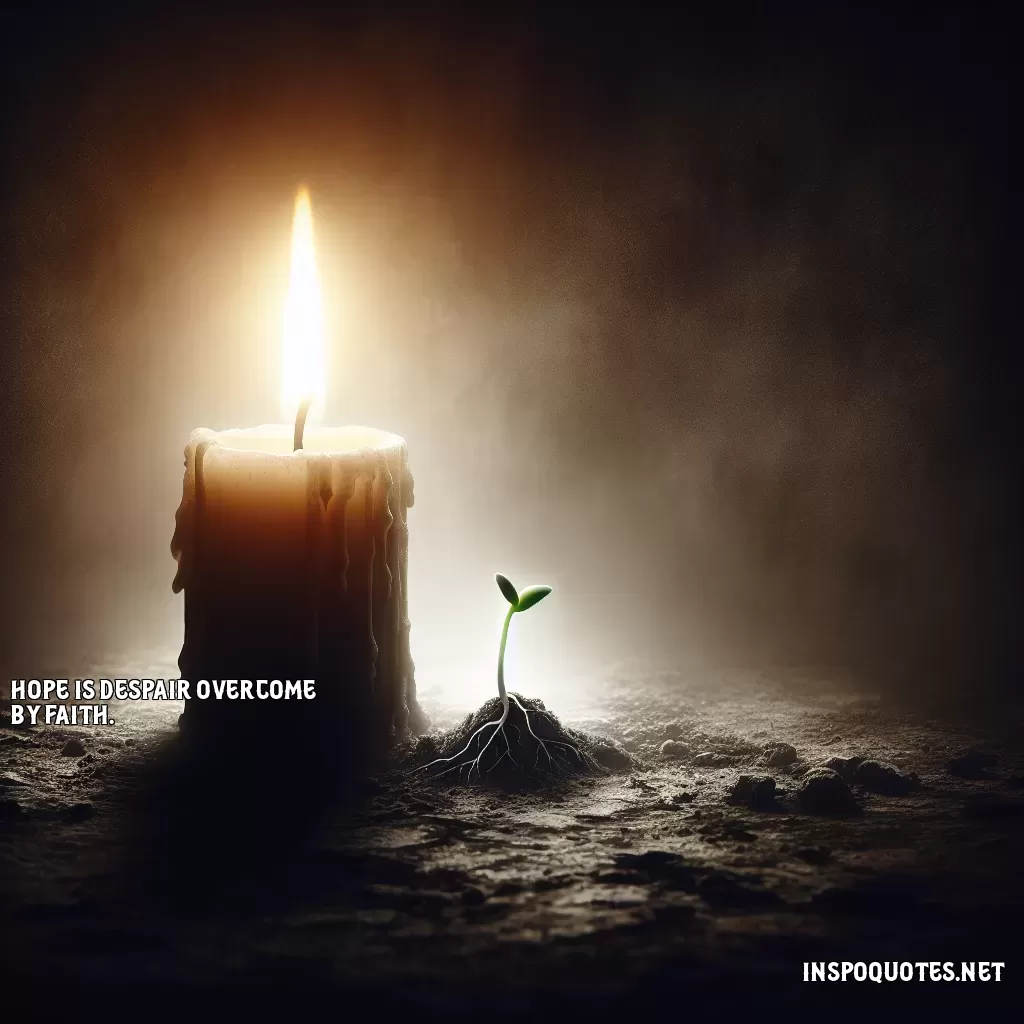
Hope is despair overcome by faith.
Author: Robert Green Ingersoll
👁️ 20 views
The quote "Hope is despair overcome by faith" presents a profound perspective on the human condition, especially when encountering challenges and adversities. At its core, this statement suggests that when individuals face despair—an overwhelming sense of hopelessness or pessimism—they can transcend this state through faith. Despair is often characterized by feelings of defeat and a loss of belief in positive outcomes. It represents a mental and emotional low point where the future seems bleak and solutions appear nonexistent. However, this quote posits that hope exists beyond this darkness, attainable through the power of faith. Faith, in this context, is not necessarily tied to religious belief, although it can be. It represents a deep-seated trust or confidence in something greater—perhaps in the inherent goodness of life, in one’s own resilience, or in the possibility of change and redemption. By embracing faith, individuals generate a transformative force that allows them to shift their perspective. They begin to see possibilities where before there were none, and they develop the conviction needed to move forward. In practical terms, people might find faith in community support, in personal strengths, or in the wisdom of past experiences and lessons learned. This faith acts as an anchor, providing stability and perseverance amidst life’s turbulence. Thus, hope, according to the quote, is the result of actively choosing faith over despair—a testament to the resilience of the human spirit. By fostering faith, one can overcome despair and ignite hope, leading to renewed motivation and the potential for positive outcomes and growth.
Quote By: Robert Green Ingersoll
Robert Green Ingersoll was born on August 11, 1833, in Dresden, New York, to a family of modest means. He grew up in a religious household, deeply influenced by the fervor of the Protestant faith prevalent at the time. However, as he matured, Ingersoll's questioning nature led him away from orthodoxy and toward a life of skepticism and rationalism. He rose to prominence in the late 19th century as one of America’s most influential orators, influential thinkers, and a staunch advocate for free thought and secularism.
Ingersoll's career began in earnest after he became a successful lawyer. His eloquence and charisma captivated audiences, and he soon shifted his focus to public speaking. Robert Green Ingersoll became known as “The Great Agnostic,” not only for his skepticism regarding organized religion but also for his bold and passionate arguments against superstitious beliefs and for the celebration of human reason. Ingersoll was a prolific writer and delivered thousands of speeches, addressing subjects such as religion, science, and the importance of individual liberty. His approach blended wit, humor, and a deep command of rhetorical techniques, making him one of the most sought-after speakers of his time.
Ingersoll’s legacy is marked by his passionate advocacy for civil rights, including women’s suffrage and the separation of church and state. He was a champion of the downtrodden and criticized the injustices prevalent in society. Robert Green Ingersoll’s thoughts were often ahead of his time, as he argued against racism and inequality, calling for a society based on reason and justice rather than dogma. His works, including "Some Mistakes of Moses" and "The Gods," reflect his philosophical views and remain influential.
Ingersoll passed away on July 21, 1899, but his impact on American thought and secularism endures. His life and writings continue to inspire freethinkers and advocates for justice and equality, making Robert Green Ingersoll a prominent figure in the narrative of American intellectual history.